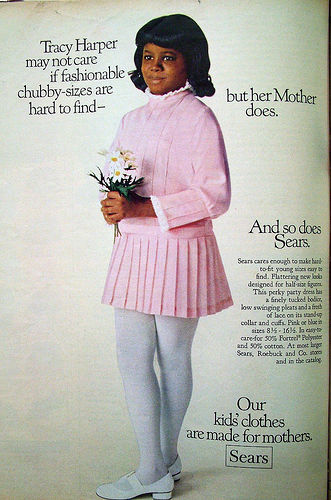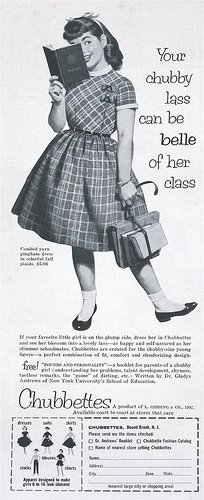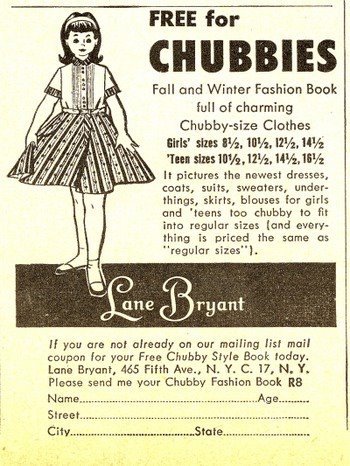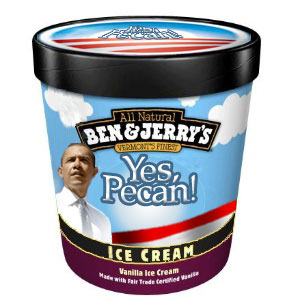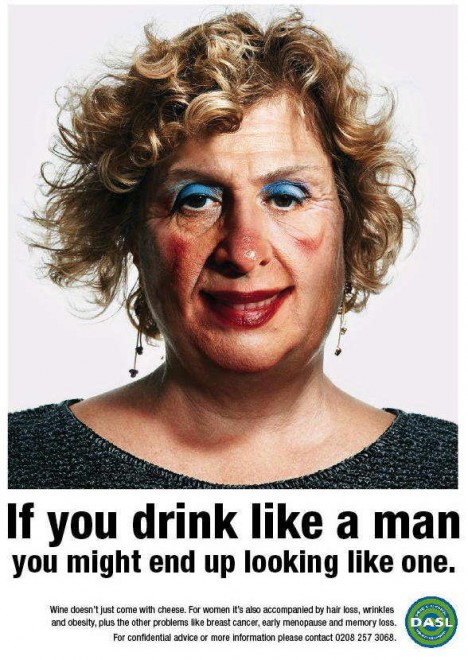
Text:
Wine doesn’t just come with cheese. For women it’s also accompanied by hair loss, wrinkles, and obesity, plus the other problems like breast cancer, early menopause and memory loss.
This ad rests on women’s fear of looking like men (whatever that means)
(1) Interestingly, none of the side-effects of alcoholism listed seem, to me, to be masculinizing. I can only imagine that the creators of this ad thought that straying from the norms of youthful femininity makes a woman seem masculine, thereby conflating aging with masculinization in women.
(2) Also, notice the excessive make-up. The ad is relying on the viewer being disgusted at the idea of a masculine face covered in make-up. That is part of what is supposed to create a negative reaction. But make-up and masculinity are not intrinsically or naturally at odds. We only believe this to be so.
(By the way, the fact that most men do not wear make-up, I think, is a beautiful example of the triumph of gender ideology over capitalism. For example. But see here.)
(3) Finally, what’s “drink like a man” all about? I guess men can have all the wine and cheese that they want without getting wrinkles because, gosh darn it, it’s just how men drink! Maybe they even get more masculine! (Hmmmm… as someone who loves her liquor, suddenly I do have penis envy.)
Thanks to Julie C. for the link!
NEW! This vintage ad (found here) uses the same logic:




